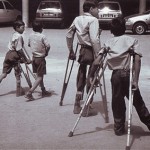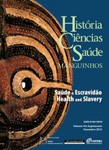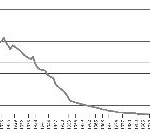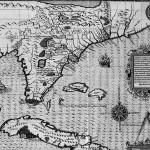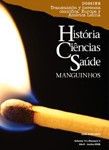December 1, 2021, World Aids Day
According to data from the Pan American Health Organization (PAHO/WHO), the number of new HIV infections in Latin America is estimated to have increased 21% between 2010 and 2019, while the number of people dying of AIDS-related death have decreased from 41000 in 2010 to 37 thousand in 2019.

An advertisement for safe sex to prevent AIDS by the Brazilian Health Ministry. 1995. In Wellcome Library.
To mark the international AIDS day, we have prepared a selection of articles, posts and stories that address different aspects of the history of AIDS, such as AIDS exhibitions in museums, the decline of the AIDS programme in Brazil, the successes and setbacks in the fight against Aids, public health campaigns, the role of social movements, the response of international institutions such as WHO and much more.
AIDS, Activism, and International Agencies in Brazil, 1987–1996 Marcos Cueto, Science editor of HCSM, published with Gabriel Lopes, “Braiding Public Health and Human Rights: AIDS, Activism, and International Agencies in Brazil, 1987–1996” Latin American Research Review (2022). This article examines the emergence of a synergy that allowed the early development of what was once considered the best anti-AIDS program in the developing world.
AIDS in museums and archives In recent years there has been a resurgence of museum exhibitions on the history of HIV and AIDS. This article by historian of medicine Manon S. Parry highlights some problems of this kind of exhibition.
The end of AIDS’ exceptionalism in Brazil The decline of the AIDS Programme in Brazil is the topic of a new article written by Marcos Cueto, Science editor of HCSM, and Gabriel Lopes Post-doctoral researcher at Casa Oswaldo Cruz / Fiocruz
A global player in the politics of Aids Marcos Cueto, science editor of HCSM, and Gabriel Lopes, postdoctoral researcher at Casa de Oswaldo Cruz (Fiocruz), explore the Brazilian participation in international debates on whether antiretroviral drugs were commodities or public goods.
HIV/AIDS, its stigma and history Our science editors André Felipe Cândido da Silva and Marcos Cueto discuss the HIV prevention policy adopted in Brazil since December 2017: the pre-exposure prophylaxis.
“Entre 30 y 35% de los diagnósticos son muy tardíos” Una breve entrevista con Massimo Ghidinelli, Jefe de la Unidad de VIH de la Organización Panamericana de la Salud, sobre el perfil epidemiológico actual del SIDA en América Latina y el Caribe.






